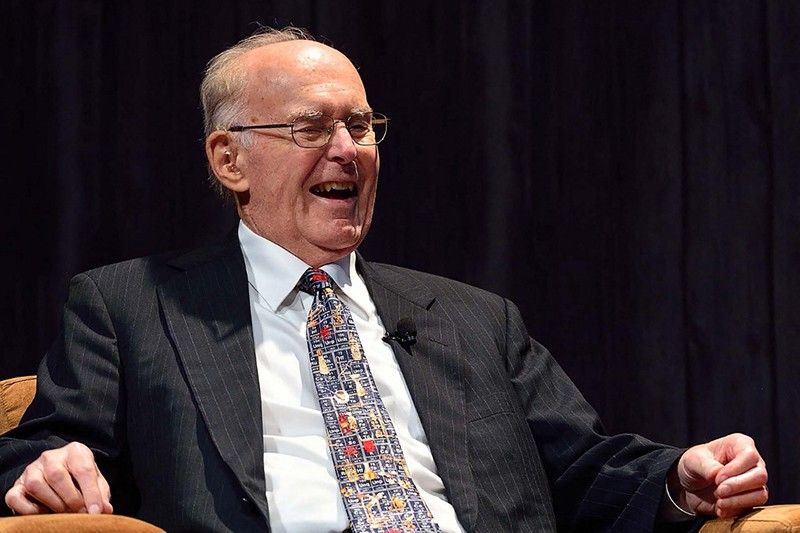Gordon Moore, titan of Silicon Valley, dies at 94

WASHINGTON, United States — Gordon Moore, a pioneer in the microprocessor industry and a cofounder of Intel, which at one time was the world's largest semiconductor maker, died on Friday at the age of 94, Intel said.
Moore was a giant in the technological transformation of the modern age, helping companies bring evermore powerful chips to smaller and smaller computers.
An engineer by training, he cofounded Intel in July 1968, eventually serving as president, chief executive and chairman of the board.
Intel, based in Santa Clara, California, said Moore died "surrounded by family at his home in Hawaii."
In its early days, Intel was known for continuous innovation, growing to become one of the biggest, most important companies in technology.
In an article in 1965, Moore first coined a theory that later became known as "Moore's Law." It stated that integrated circuits would essentially double in power every year. He later revised the law to say the doubling would occur every two years.
The axiom held true for decades and became synonymous with the rapid rate of technological change in the modern world.
"All I was trying to do was get that message across, that by putting more and more stuff on a chip we were going to make all electronics cheaper," Moore said in a 2008 interview.
After earning his PhD from CalTech, Moore and a colleague in 1957 joined Fairchild Semiconductor Laboratory, one of the earliest firms to manufacture commercially viable transistors and integrated circuits.
As the company grew, the seeds were planted for the transformation of the peninsula of land south of San Francisco into what became known as Silicon Valley.
Moore and longtime colleague Robert Noyce struck out on their own in 1968, bringing along a third, Andy Grove, who would become a future Intel CEO.
Moore retired from Intel in 2006.
Over his lifetime, he donated more than $5.1 billion to charitable causes through the foundation he set up with his wife of 72 years, Betty.
"Though he never aspired to be a household name, Gordon's vision and his life's work enabled the phenomenal innovation and technological developments that shape our everyday lives," said Harvey Fineberg, president of the Gordon and Betty Moore Foundation.
Leaders of Intel heaped tribute on Moore.
"He was instrumental in revealing the power of transistors, and inspired technologists and entrepreneurs across the decades," said Intel chief executive Pat Gelsinger.
"He leaves behind a legacy that changed the lives of every person on the planet. His memory will live on," Gelsinger added on Twitter.
- Latest
- Trending


























